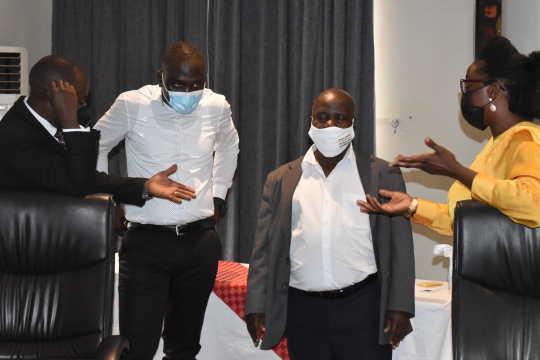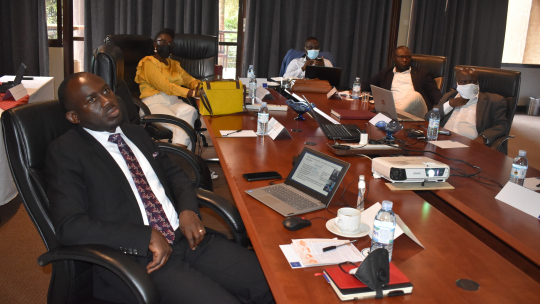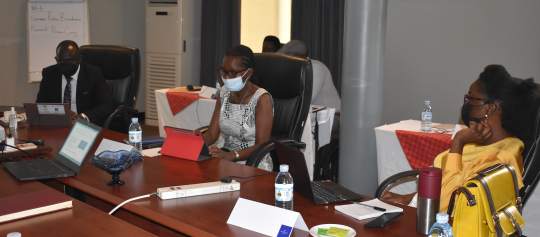Officials from Uganda’s Ministries, Departments, and Agencies (MDAs) participate in a program that provides knowledge on how to design and enforce policy instruments to achieve a transition towards a green economy. In September they took part in a two-day training session.
The program is called Inclusive Green Economy (IGE) in Practice and is an extensive capacity development program that covers five countries, Uganda, Ethiopia, Kenya, Tanzania, and Rwanda. In Uganda, it’s hosted by the Makerere University’s Environment for Development Initiative (EfD-Mak) Center.
Uses economic instruments
The two-day training (16th-17th of September 2021) was held virtually and physically. Participants were senior public servants from the Ministry of Finance, Planning and Economic Development, Ministry of Water and Environment, the National Planning Authority, and the National Environment Management Authority.
The training was facilitated by the University of Gothenburg, Sweden including the IGE program Head, Anders Ekbom. Other instructors were Niklas Harring, Daniel Slunge, Emelie César, Martin Solvinger and Erik Sterner.
The program focuses on the use of environmental policy instruments, and specifically economic instruments such as environmental taxes, pollution fees, subsidies or subsidy reduction, and other types of fiscal incentives for societal development in line with the Global Agenda 2030.
“Future generations in mind”
It’s an advanced in-service training with direct applicability in the participants’ daily work involving theoretical training within IGE, practical exercises, project development, and support for implementing own change work.
“The major aim of the program is to create capacity among public servants to plan sustainably, so that while planning, they should be mindful of the future generation in terms of the environmental issues,” said Peter Babyenda, Makerere University’s Policy Engagement Specialist who is in charge of coordinating the IGE program in Uganda.
He also noted that Uganda has a long way to go when it comes to implementing green policy instruments.
Will advance green growth
Ronald Kagwa works with the National Planning Authority as Manager Production Trade and Trading planning and is also in charge of the green growth development strategy and its implementation.
“We are here to build capacity in green growth policies especially how to use green growth instruments to advance inclusive growth in development. So today has been a good day in that, we have learned about policy instruments, trust, policy attitudes all of which are critical for successful implementation of green policy instruments”. Said Dr. Kagwa
Acceptance means compliance
Moreen Anino is an Assistant Commissioner in the Ministry of Water and Environment.
I am here to undertake this program on Inclusive Green Economy and today I am happy to have learned about social inclusion and developing instruments that are acceptable to the public because this will help us to achieve higher levels of compliance during the implementation of these policies,” Ms. Anino said.
Previous training sessions have been held in June this year and more are scheduled for October. The program will be wrapped up by regional training in November, and with discussions among peers from Uganda, Tanzania, Rwanda, Ethiopia, and Kenya where notes shall be compared.
Facts, the Inclusive Green Economy (IGE) program
EfD and Gothenburg Centre for Sustainable Development (GMV), collaborate in an extensive program for capacity development in Eastern Africa, IGE. This program strengthens the national capacity to create an inclusive green economy. The training focuses on economic instruments while considering the social aspects of the policy implementations.
The IGE program is fully sponsored by Swedish Development Agency (Sida).
Compiled by:
Jane Anyango
Communication Officer, EfD-Mak Centre


